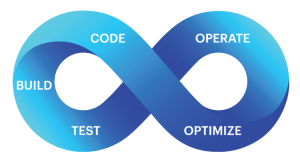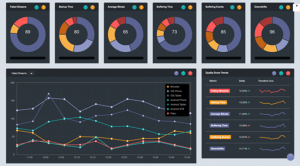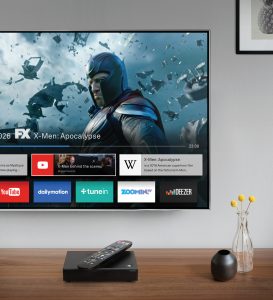A critical component to digital video disruptors operating model versus traditional pay-TV and broadcasters is the use of data in product decision making. They are used to observing consumer behavior and rapidly changing their offerings based on empirical evidence. They value experimentation over procrastination, being willing to change UIs overnight, for either the entire customer base, or for a targeted segment.
Gone are the days when you needed a crystal ball and two years of business analysis to fully describe every requirement of a TV service. The waterfall model of software development, which is still widespread in pay-TV is an inadequate match for the needs of today’s viewers affecting competitiveness and market agility.
Delivering better experiences requires richer, more actionable data, and a culture change to deliver faster. With the right culture, tools and process you can measure the velocity of value as you create it. TV operators need to evolve the way they make decisions, using data to drive value and change in their delivery systems. To do this the operator must move from an environment dictated by release dates, to a world of rapid, continuous deployment.
By taking control of the code, RDK means operators can better manage the customer experience, with increased service velocity and greater control of the device software. Since operators control the code, they can extract visibility and instrumentation based on the exact things in which they are interested. Test automation has emerged as a key capability to extracting that value. It is important because it can rapidly and automatically generate objective feedback loops throughout the entire development process, at scale.

When we use the word test, we are not talking purely about a traditional software test to see if a build works properly. We are speaking of getting a detailed understanding of viewer usage and system performance across the software delivery life cycle, such as that provided by Accenture StormTest. The insights it supports, guides an agile operating model to deliver the functionality and experience demanded of a modern video service. Providing product teams with a window into the consumer habits, and with Development specifying and applying feature changes daily.
The key requirements to make this achievable is transparent access to data from development, delivery and consumption. Test automation injected across the Software Development Life Cycle is ideally placed to provide accurate, timely feedback at scale. Providing a shared source of objective feedback, instrumented to measure agreed KPIs.
The value of the data is further enhanced by integrating additional data sources. With the RDK’s open architecture, service providers can easily capture data and aggregate it with other external data sources, to gain a deeper understanding of how the end-user experience is influenced by its firmware releases. Accenture has developed an advanced analytics framework for RDK, leveraging leading data ingestion, analytical and visualization platforms, combined with analytic models derived from our many engagements in CPE development, and field installation and repair.
 As we increase velocity of delivery, using agile and DevOps, having an accurate status of the health and direction of release trajectory is essential. This is important today, but as pay-TV open their platforms to Home Automation, IoT, VR and start using AI they will introduce further complexity, making a strong test automation capability essential.Accenture will be presenting on ‘The Power of Predictive Analytics – How Accenture’s advanced analytics framework leverages data ingestion, visualization platforms and more to enhance RDK-based deployments’, at the RDK European Summit, this September 2017.To learn more about Accenture StormTest test automation platform visit: https://www.accenture.com/us-en/product-digital-video-stormtest.
As we increase velocity of delivery, using agile and DevOps, having an accurate status of the health and direction of release trajectory is essential. This is important today, but as pay-TV open their platforms to Home Automation, IoT, VR and start using AI they will introduce further complexity, making a strong test automation capability essential.Accenture will be presenting on ‘The Power of Predictive Analytics – How Accenture’s advanced analytics framework leverages data ingestion, visualization platforms and more to enhance RDK-based deployments’, at the RDK European Summit, this September 2017.To learn more about Accenture StormTest test automation platform visit: https://www.accenture.com/us-en/product-digital-video-stormtest.



 As we increase velocity of delivery, using agile and DevOps, having an accurate status of the health and direction of release trajectory is essential. This is important today, but as pay-TV open their platforms to Home Automation, IoT, VR and start using AI they will introduce further complexity, making a strong test automation capability essential.Accenture will be presenting on ‘The Power of Predictive Analytics – How Accenture’s advanced analytics framework leverages data ingestion, visualization platforms and more to enhance RDK-based deployments’, at the RDK European Summit, this September 2017.To learn more about Accenture StormTest test automation platform visit:
As we increase velocity of delivery, using agile and DevOps, having an accurate status of the health and direction of release trajectory is essential. This is important today, but as pay-TV open their platforms to Home Automation, IoT, VR and start using AI they will introduce further complexity, making a strong test automation capability essential.Accenture will be presenting on ‘The Power of Predictive Analytics – How Accenture’s advanced analytics framework leverages data ingestion, visualization platforms and more to enhance RDK-based deployments’, at the RDK European Summit, this September 2017.To learn more about Accenture StormTest test automation platform visit: 
